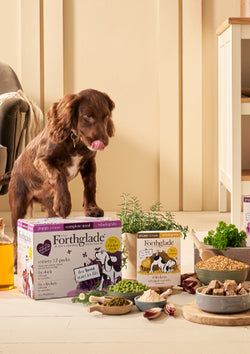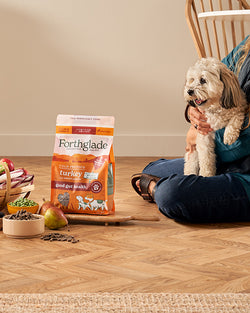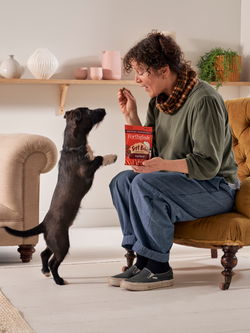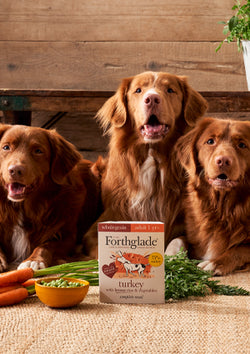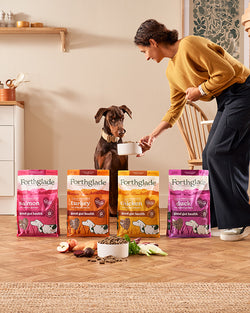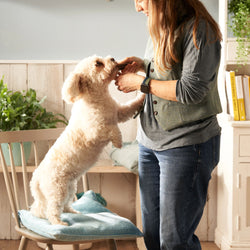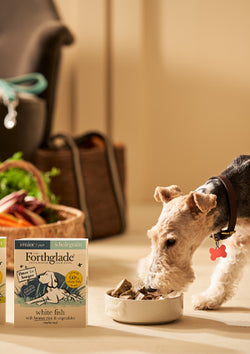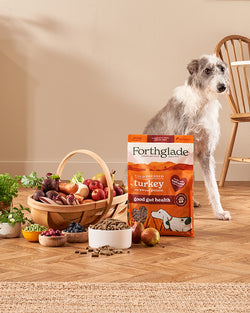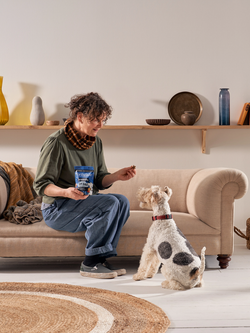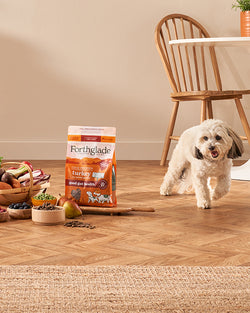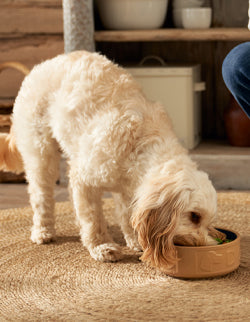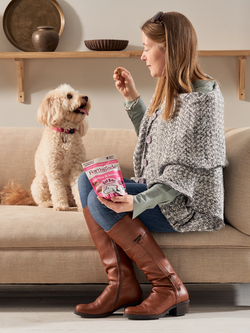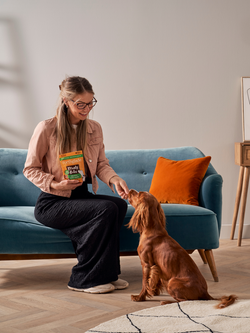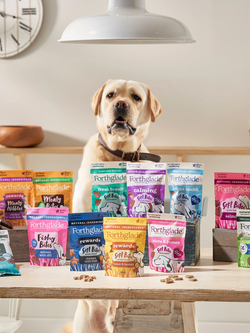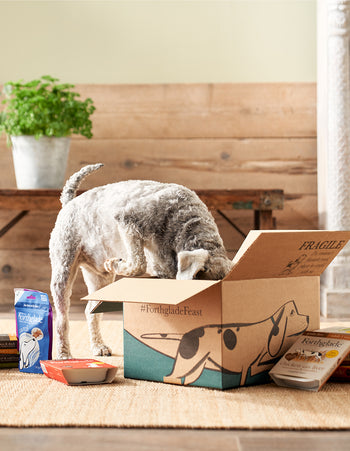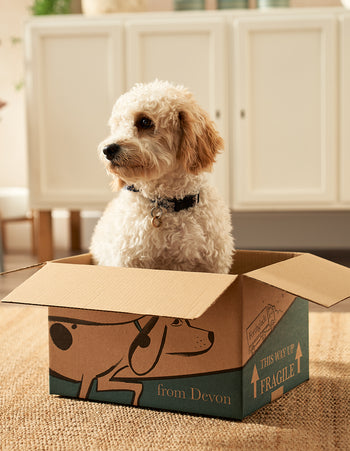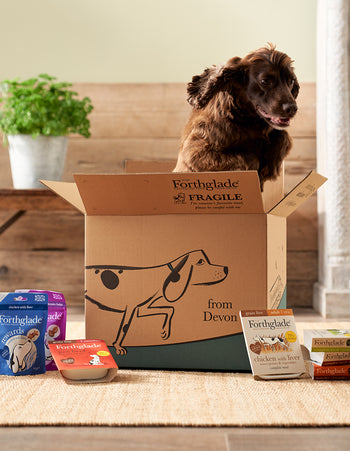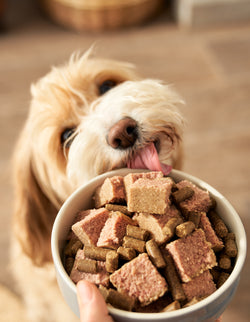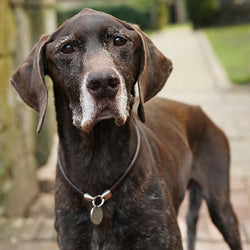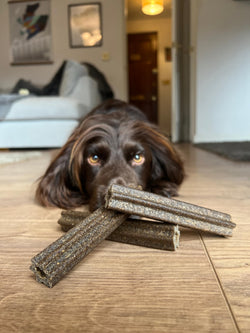Puppies are known for spending their days playing, investigating interesting objects and chewing. It’s a normal part of puppyhood. Although chewing and mouthing on people’s hands or clothes may seem cute at first, if the behaviour isn’t corrected, it can soon turn into a bigger issue.
If you want to get your puppy out of the habit of biting and mouthing, you’re in the right place! Here, we’ll be sharing our top tips and tricks on how to stop your puppy from biting.

Why do puppies bite?
Puppies bite because it’s how they investigate the world around them. It’s perfectly natural for them to nibble and chew on both objects and people. It’s also an important part of their growth and development as they learn how their teeth and mouth work. Biting can also be especially common when puppies are teething. Teething lasts until they are around seven months old and can be an uncomfortable time for them (and us when our hands, ankles and feet get the brunt of it). But, providing chew toys may help to combat the teething discomfort.
How to stop your puppy from nipping and biting
Like with most puppy behaviours, nipping and biting can be trained. There are plenty of practical and positive steps you can take to teach your puppy not to bite and instead be gentle with their mouth.
Redirect their mouths
If your puppy begins to nibble on your hands, safely redirect their mouth onto a toy instead. Over time, this will teach them what things are suitable for biting and what shouldn’t be bitten. They’ll also learn that biting chew toys is much more satisfying than biting people. Try not to react by moving your hands quickly or squealing, as they may get the wrong idea and think you’re playing.
Alternatively, engaging them in training exercises and games, such as tug of war and fetch will help direct their energy elsewhere. Plus, brain games like hide and seek or puzzle toys with plenty of puppy treats will provide a good distraction from biting.

Take away temptation
There are some items that puppies just can’t resist getting their little mouths on. So, we suggest taking away temptations, such as loose socks, dressing gown belts, loose charger cables or shoes with laces for a little while. These items can all excite your puppy and provoke more biting; they could also be dangerous if they end up swallowing them. Soon enough, your puppy will realise that toys are way more fun.
Learn their triggers
Over time, you’ll learn what triggers your puppy to bite. A trigger could be anything from becoming overexcited during play, or fear and anxiety over something or someone they’re not familiar with. It may be useful to take note over the weeks if any particular event or time of day triggers the biting. This way, you’ll know when to avoid certain activities. For example, if your puppy gets grouchy in the evenings, give them a long-lasting chew toy to wind down with rather than trying to rile them up for play.
Change the play
Sometimes, a puppy may get bored with playing the same game and need a change of pace. Encouraging different types of non-contact forms of play, such as fetch, tug of war, hide and seek or chasing a flirt pole with a toy attached, will keep them active, enriched and less likely to bite your hands. These types of games are especially good for younger children to be able to safely play with the puppy.

How to stop puppy from biting your ankles
If you find your puppy is targeting your ankles every time you move, we suggest carrying a favourite toy around to redirect their mouth. When the puppy goes to bite your ankle, stop moving and wave the toy around instead to divert their attention away from you. If you don’t have a toy on hand, simply stop moving and wait for your puppy to stop mouthing you. The moment they’ve stopped, give plenty of praise and reward with a treat. Although you may feel frustrated, staying calm and not snapping at your puppy is vital for them to feel safe and receptive to the redirection. Getting angry may cause them to feel the need to become defensive. Repeat these steps until your puppy is used to you moving around.
Be patient
Bringing home a puppy is a big learning curve for both the pet and the owner. Neither of you will get things right every time but it’s important to never, shout, hit or punish the puppy for mouthing as it will cause confusion, fear and even aggression. Instead, be patient, calm and repetitive and enforce a positive, reward-based training to achieve the best results.
How to stop hard biting
If your puppy is still biting by the time they’ve finished teething, and the bites are hard rather than playful, there are a few things you can try to combat this. First, immediately after the bite, give a high-pitched yelp as if you’re hurt. This should startle the puppy enough to take their mouth off you. Having a repetitive phrase like ‘too bad’ or ‘no more’ in a stern tone will eventually teach them when they shouldn’t do something. Don’t forget to praise your puppy for stopping the bite.
Alternatively, you can put your puppy in a short time-out. Timeouts are very effective for stopping unwanted behaviour. When the puppy bites, stop the play and put them either in their crate or another safe space and walk away. They may whine or paw to get out, but this is normal. After the short time out, let your puppy back in the room with you and encourage them to play again. These steps can be repeated to teach them that gentle play is fun and can be continued, but hard or painful play stops.

Make sure they get good rest, exercise, and high-quality meals
While puppies have a lot of energy and require plenty of exercise, they can also quickly get overtired or bored, resulting in more mouthing. Make sure your puppy is getting enough rest during the day (generally, they need 18-20 hours of sleep) to prevent them from getting frustrated and biting. If your puppy is reluctant to nap, schedule some quiet time or put them in a safe, comfortable space to encourage them to relax and switch off.
It’s equally important to ensure your puppy is getting the right amount of food for their age. Since puppies have small tummies, they need several meals throughout the day. Just like humans, hunger can make them feel irritable, triggering a potential bite. Providing a high-quality diet of natural puppy food will keep them satisfied and happy.
Conclusion
While it’s normal for puppies to bite, especially during play, it’s something that shouldn’t become a habit, especially once they’re past seven months old. Luckily, biting and mouthing can be trained out by using toys to redirect their attention, treats, praise and plenty of exercise and mental stimulation.
If you’re going on lots of walks with your puppy, chances are they’re getting filthy as they explore the exciting new world around them. Read our blog on how to bathe a puppy to keep them squeaky clean.






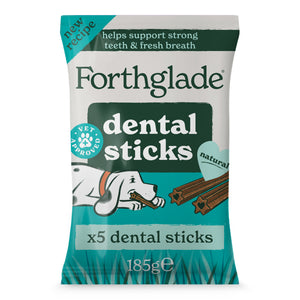
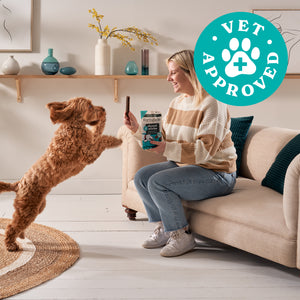
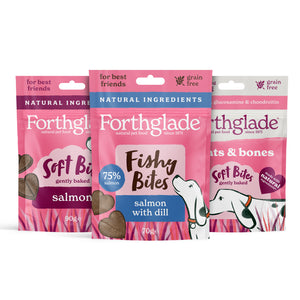
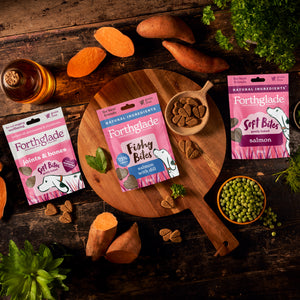


 FAST & FREE DELIVERY ON ORDERS £40+*
FAST & FREE DELIVERY ON ORDERS £40+*
 SUBSCRIBE TO SAVE 10% OFF EVERY ORDER
SUBSCRIBE TO SAVE 10% OFF EVERY ORDER
 OVER 13,600 5 STAR REVIEWS
OVER 13,600 5 STAR REVIEWS


